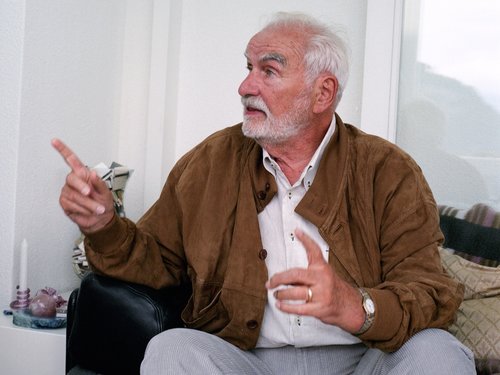His life was dedicated to his work and it took him around the world, from the sophisticated capitals to the sprawling slums. During his career, he played a leading role in international financial institutions. His compassion and respect for humanity as a whole were the defining characteristics of his belief that helping people to help themselves would always achieve significantly more than short-term financial aid. His watershed experience was a chance encounter with a small boy in a pineapple processing plant in Thailand.
While there to conduct credit negotiations, Ernst-Günther Bröder noticed the boy as he monotonously packed cans into cartons at the end of a production line. It was hard work and wholly unsuitable for children. Yet the boy was happy and seemed satisfied. He said how pleased he was to have this job and how it helped him contribute to the family income. How much more could he contribute if he had the opportunity to learn to read and write, mused Ernst-Günther Bröder.
 |
| Dr. Ernst-Günther Bröder |
Ernst-Günther Bröder was born in Cologne on 6 January 1927, the son of a German father and a French mother. He grew up in a middle-class family, far from the world of politics. With this background, Ernst-Günther Bröder was never interested in party politics of any kind, which ultimately turned out to be an advantage as his career progressed. His passion and commitment were to humanity as a whole and based on mutual respect.
All over the world: from Pernambuco to Timbuktu
After initially studying medicine, Ernst-Günther Bröder changed direction, took up economics and later completed his doctorate. He began his professional career in 1956 in the executive offices at Bayer in Leverkusen. His responsibilities there, working for a company with global operations, taught him to “look at the big picture”. His application for a position at the World Bank in Washington was successful. Chosen from 200 other applicants, the door to a global career was now open. This position involved assignments that took Ernst-Günther Bröder all over the world. His role was to evaluate the creditworthiness of many different types of projects with a professional and critical eye. Pernambuco and Timbuktu, places he had dreamed of visiting as a young man, were suddenly more than just exotic dots in an atlas.
Working across party lines
In 1964, Ernst-Günther Bröder moved to the Kreditanstalt für Wiederaufbau – today, the KfW banking group is the world’s largest national development bank. In 1974, Helmut Schmidt (SPD), then Federal Chancellor, appointed him to the management board and in 1980 he was elected Speaker by his fellow board members. In 1984, the finance ministers of the European Union appointed him President of the European Investment Bank in Luxembourg, the bank of the EU and the world’s largest multilateral lender. This was where Ernst-Günther Bröder met his future wife Dorothe.
Strategic thinking, tenacity, sustainability
Ernst-Günther Bröder was tenacious in pursuing his goals. He was able to get things done and was persuasive, but could also be extremely forceful. He was incorruptible, always striving to analyse a project objectively, form his own opinion, then shape the decision-making process or make the decisions himself.
When dealing with others, his approach was straightforward, trustworthy and without prejudice. Due to his long-term experience with development projects, he firmly believed that development and education projects that were based on mutual trust could always achieve significantly more than short-term financial aid.
Objective and principled
In 1994, the World Bank appointed him to lead the newly-formed Inspection Panel, charged with auditing the Bank’s projects in different areas. The first project was a dam in Nepal and the investigation carried out by the Panel resulted in changes to the plans to better address the needs of the local population. His objective and principled decisions often had to overcome resistance from within the World Bank. However, Ernst-Günther Bröder placed greater importance on results which promoted positive development at the local level, and his objective and politically-neutral approach soon won him the full support of NGOs and environmental groups who had initially viewed him with suspicion.
Ernst-Günther Bröder died on 13 December 2013 in Hergiswil, Switzerland. This Foundation is his legacy.